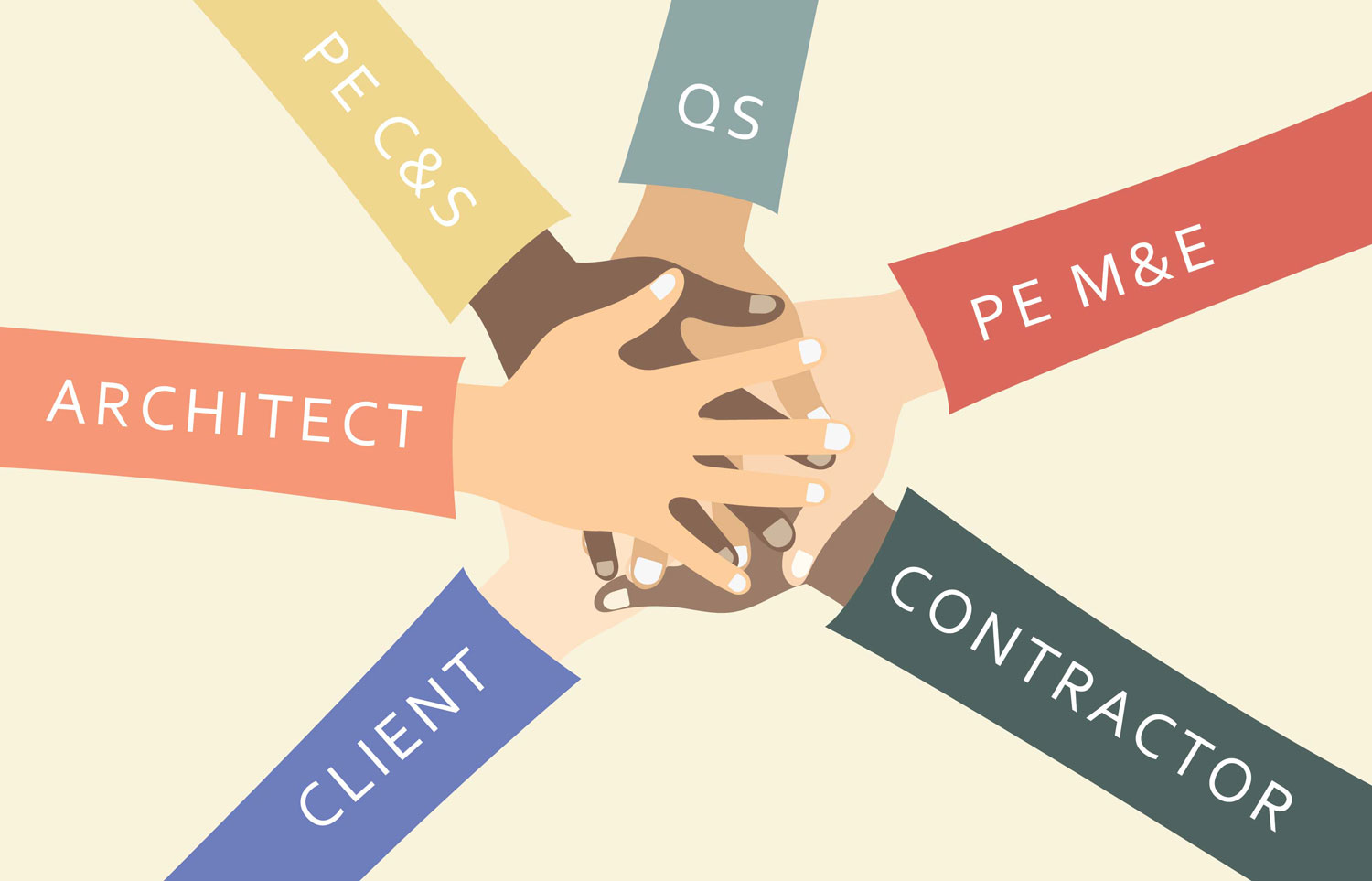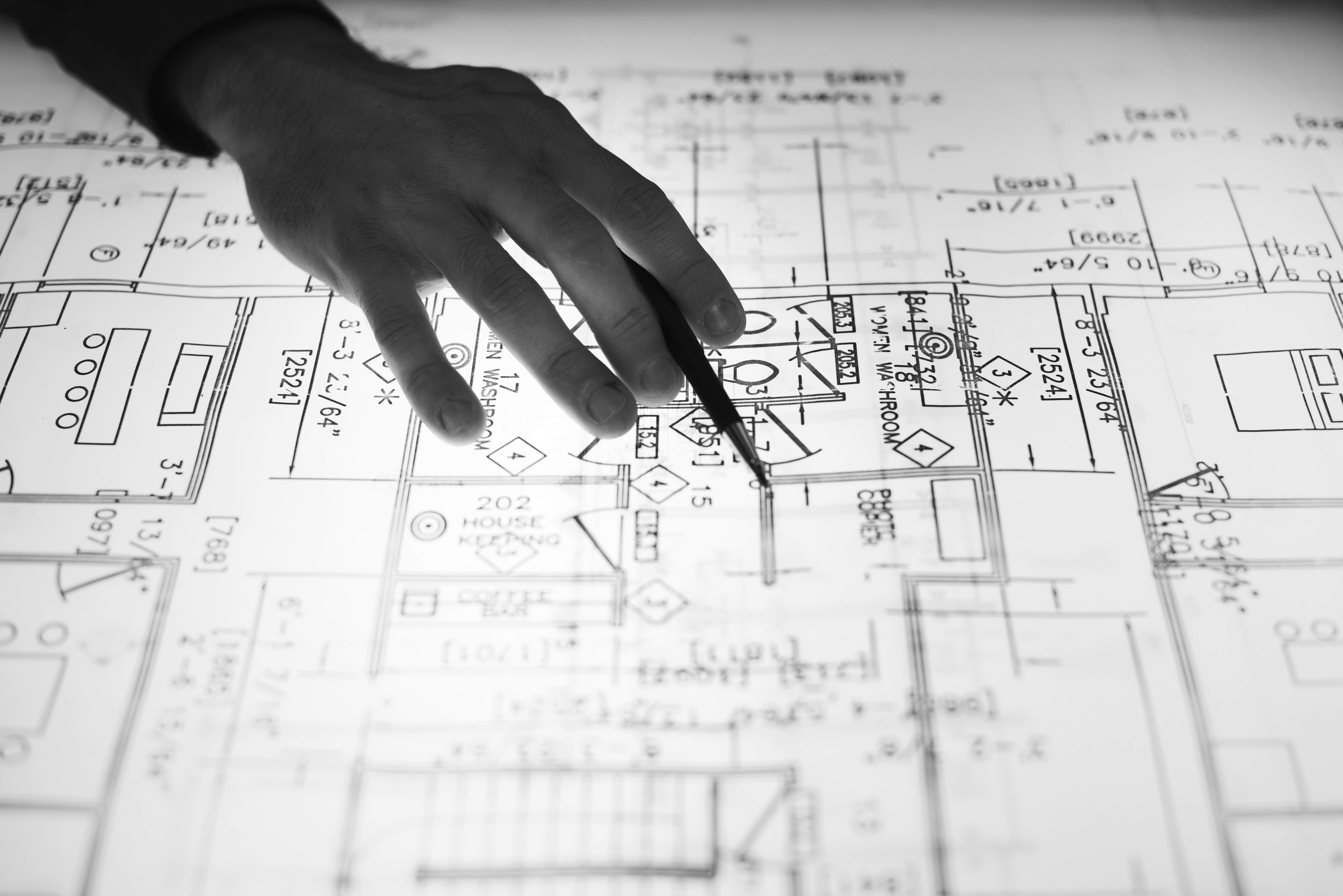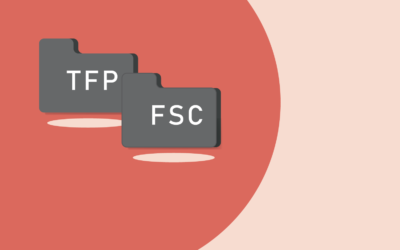WORKING WITH PROJECT CONSULTANTS?

We tell you why your building requires these different parties to make it work
In every building project, it is essential that you have the following parties: Architect, Civil & Structural Professional Engineer (C&S PE), Mechanical & Electrical Professional Engineer (M&E PE), a Quantity Surveyor (QS) and lastly a good Main Contractor.
The Architect
Architects, also known as Qualified Person in Singapore, are the lead consultant of majority of all building projects. During the design phase, Architects manage the design, documentation & authorities’ submissions. In the implementation phase, the construction programme and building contracts are administered by the Architect.
The Architect is an agent to the client and a large part of client communications and coordination with consultants comes from the Architect’s office. While the other consultants may seem invisible to the client, they are critical in their roles to the project and should be engaged at the start of every project.
The Civil & Structural Professional Engineer
The C&S PE are involved at the very start of the project during the planning phase. Their input will allow the Architects to properly coordinate the building works with the structural design. Reducing surprises of a protruding beam or an awkward column, maximizing your overall area or space efficiency.

Coordination work between consultants at technical meetings
The Mechanical & Electrical Professional Engineer
M&E planning and coordination works are a commonly overlooked aspect of the interior planning. These are items that will affect your internal clear ceiling height and resultant clear area when badly planned. Badly coordinated M&E works also affect the external aesthetics of a piece of architecture, especially true for commercial and offices.
The Quantity Surveyor
A QS will assist in the cost planning, cost analysis and valuation of works to guide the Client throughout the design stage, tender process and contract period.
The Main Contractor
Lastly a skilled, effective and cooperative contractor will make the whole project work. Every contractor have their strengths and differing competencies. The tender process will allow the Architect to make proper recommendations and client to make an informed decision. Read more about why clients opt for tender here.

On site coordination works
In summary, all projects require project consultants with the Architect as the lead consultant. In some projects, depending on the intention and requirement for the space, there may be other specialists (ie. Project Manager) who will be required to be part of the project to make it successful. Be sure that you are engaging consultants to actively be involved in the process of the design of your building. Read more about the tender process and find out how the process can work for you.
RELATED ARTICLES
Industry Lingo: Fire Safety & Shelter Department (FSSD)
Merged with the Central Enforcement Department (CED) in April 2020, the Fire Safety and Shelter Department (FSSD) comes under the umbrella…
Industry Lingo: Who is a Resident Technical Officer (RTO)?
The Resident Technical Officer (RTO) is a civil or structural engineering trained individual who ensures that there is…
Fire Safety Certificate (FSC) vs Temporary Fire Permit (TFP)
A Fire Safety Certificate (FSC) is required under the Fire Safety Act for all premises when a person wishes to change the design and layout…
NAVIGATE
Address
402 Orchard Road #03-10 Delfi Orchard Singapore 238876
Buildwith@swingarchitects.com
Phone
+65 94357213 | +65 88867531
All images and content may not be used without permission



